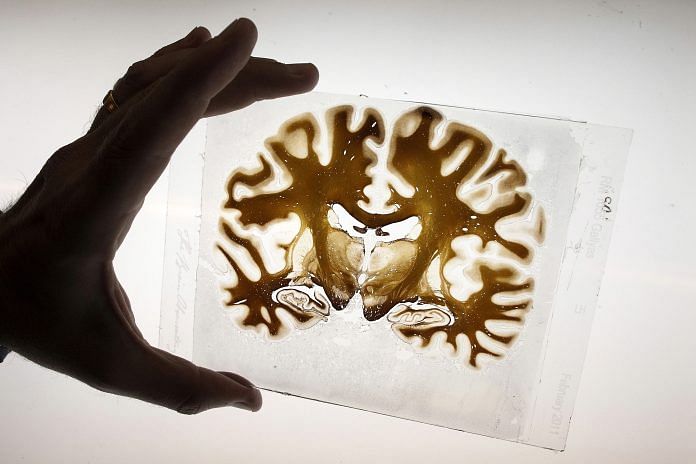
New Delhi: Scientists in the UK have found evidence in brain images that shows that mild Covid-19 infection results in significant loss of grey matter in several parts of the brain linked to various functions such as memory formation, emotional response and basic functions vital for survival, such as heart rate, respiration, and digestion.
The team from the University of Oxford in the UK noted that while there is strong evidence that Covid can affect the brain, the vast majority of brain imaging studies so far have focused on moderate to severe cases. Such studies are often carried out on hospitalised patients.
However, whether the impact of Covid-19 can be detected in milder cases, was unknown.
The team wanted to determine whether the effect of mild Covid on the brain can reveal a possible mechanism for the spread of the disease.
UK Biobank — a large-scale biomedical database containing in-depth genetic and health information from half a million UK participants — had scanned over 40,000 participants before the start of the Covid-19 pandemic.
This made it possible for the researchers to invite back in 2021 hundreds of previously imaged participants for a second imaging visit.
“We studied the effects of the disease in the brain using multimodal data from 782 participants from the UK Biobank COVID-19 re-imaging study, with 394 participants having tested positive for SARS-CoV-2 infection between their two scans,” the team wrote in their study posted on medRxiv which is yet to be peer-reviewed.
Grey matter loss
The researchers compared brain scans from before and after Covid infection to determine the brain changes between these 394 Covid-19 patients and 388 controls (participants who did not get Covid).
The researchers identified significant effects of Covid in the brain with a loss of grey matter in the left parahippocampal gyrus, the left lateral orbitofrontal cortex, and the left insula.
The left parahippocampal gyrus is associated with memory, the orbitofrontal cortex (OFC) is involved in the cognitive process of decision-making and the insula is related to basic survival needs such as heart rate, digestion, respiratory rate, urination, sexual arousal, and fight-or-flight response.
The team also compared 15 Covid-19 patients who had been hospitalised with those who were not. While the results were not significant, the team found a higher amount of grey matter loss in hospitalised patients from the cingulate cortex, central nucleus of the amygdala and hippocampal cornu ammonis.
The cingulate cortex is associated with emotional responses, the amygdala forms emotional memories and the hippocampal cornu ammonis is essential for memory formation.
The researchers noted that unlike several studies which look at brain images only after Covid infection, this particular research was able to look at the ‘before’ and ‘after’ brain images of patients, allowing the scientists to rule out any other causes of grey matter loss.
However, as this study is observational, researchers said that one cannot make claims of disease causality with absolute certainty — that is it is not necessary that the grey matter loss was caused by the Covid-19 infection.
Some other, undetermined factors may be behind the loss, for which further studies will need to be conducted, the researchers said.
Subscribe to our channels on YouTube & Telegram
Why news media is in crisis & How you can fix it
India needs free, fair, non-hyphenated and questioning journalism even more as it faces multiple crises.
But the news media is in a crisis of its own. There have been brutal layoffs and pay-cuts. The best of journalism is shrinking, yielding to crude prime-time spectacle.
ThePrint has the finest young reporters, columnists and editors working for it. Sustaining journalism of this quality needs smart and thinking people like you to pay for it. Whether you live in India or overseas, you can do it here.